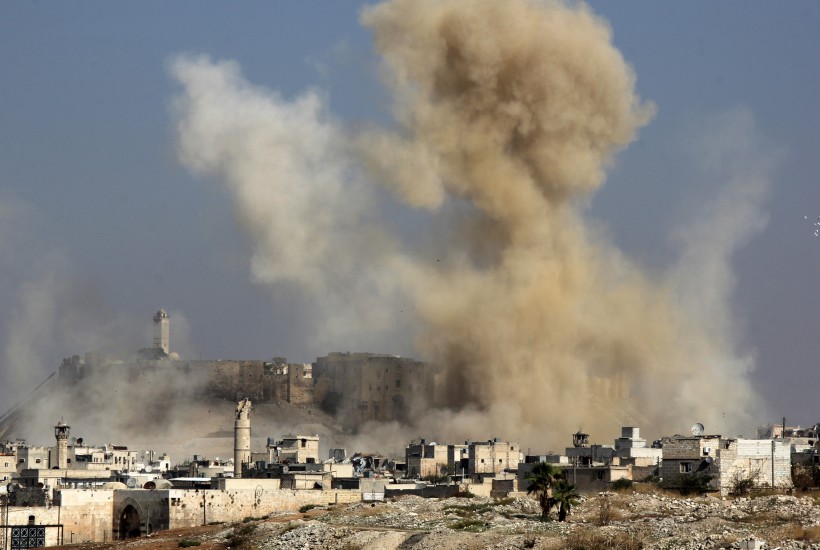‘National security’ has become our main justification for war
written for The Spectator, 2nd December 2015

I’ve been in touch with Anisa for just over a year, ever since I met her in a dingy refugee compound on the outskirts of Amman. She’s a super-educated young woman from Damascus (most of the early wave of refugees were) and she’s never had much time for self-styled IS (‘none of them are actually Syrian, they’re invaders,’ she insists).
Today Anisa is more depressed than ever. If Britain joins the coalition of airstrikes against IS territory in Syria, it will largely be symbolic, as The Spectator’s leader explains. The US has already been bombing Raqqa for nearly a year and a half. As the analyst Shashank Joshi suggests, we have a limited airforce, and ‘neither Cameron nor Defence Secretary Michael Fallon has explained whether or how British air strikes in Syria might dilute current efforts in Iraq.’ But Anisa remembers only one thing about the British Parliament. They’re the people who voted no, in August 2013, to punishing Assad for the use of chemical gas against civilians. ‘Why,’ she asked me this morning, ‘is it ok when a Shia butcher does it, but not when a Sunni butcher does it? Or does your country only care when they come to Paris and attack your people, too?’
Of course, it’s more complicated than that. We’ve seen MPs queue up today to point that out. But in visiting and working with Syrians over the last two years, one thing has become clear to me. If we’d significantly weakened Assad in 2013, there were sufficient indigenous, Free Syrian Army forces who might fill the breach. Now, they are battered and scattered – Cameron’s 70,000 numbers look very shaky indeed – and IS have grown happily into that vacuum. Like the Great Powers at Yalta, IS and Assad have divided up Syria between them.
None of this was unpredictable. In early 2014, I met Interim Prime Minister Ahmed Tu’meh of the expatriate rebel leadership – a charismatic man nonetheless hopelessly cut off from the action on the ground. He was skeptical about peace talks, telling me ‘Assad’s strategy will be to wait things out until, again, he is the only possible partner the West can find’. His friends in Iran and Moscow have helped him get there.
It’s true that IS is qualitatively different from Assad as a diplomatic entity. Liam Fox argued today that ‘it does not seek accommodation; it seeks domination’. Assad, at this stage, is all too eager for accommodation with the West. But President Obama stated in 2012 that using chemical weapons against one’s citizens was a ‘red-line’ that the West would not accept; when we failed to follow through Britain and America lost all credibility. Anisa’s complaint gets at the heart of the legal issue: we now accept ‘national security’ as our single casus belli; and we do seem only to care about our people, and who is most likely to blow them up. (And yes, as Padraig Reidy argues, Parisians are our people).
I doubt joining air strikes today will make much difference. But I am sure of one thing. Had we given air support to the Syrian Free Army in 2013, we could not have made Syria more of a mess than it is today. There’s half a chance that what Vladimir Putin calls our ‘small island‘ might even mildly matter in the world.




